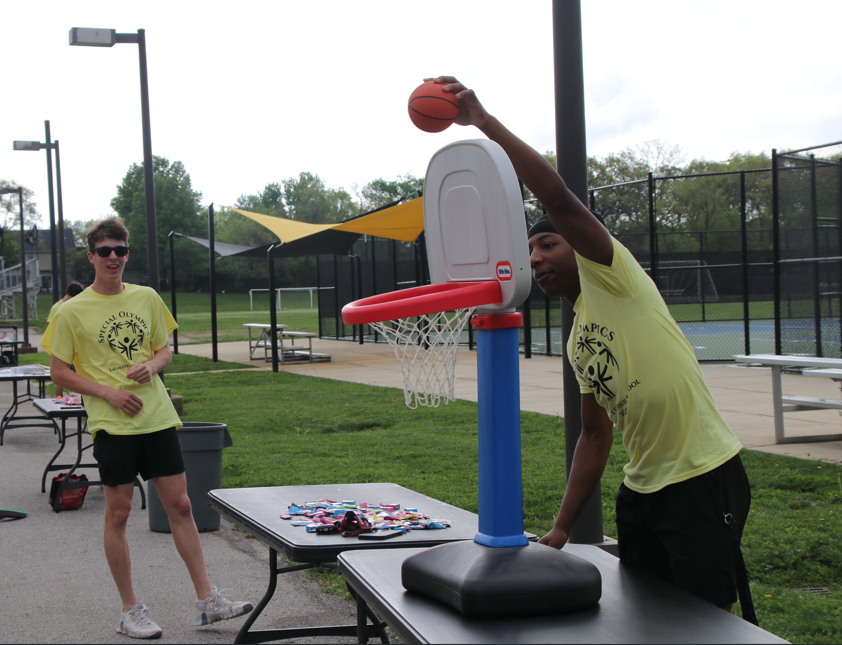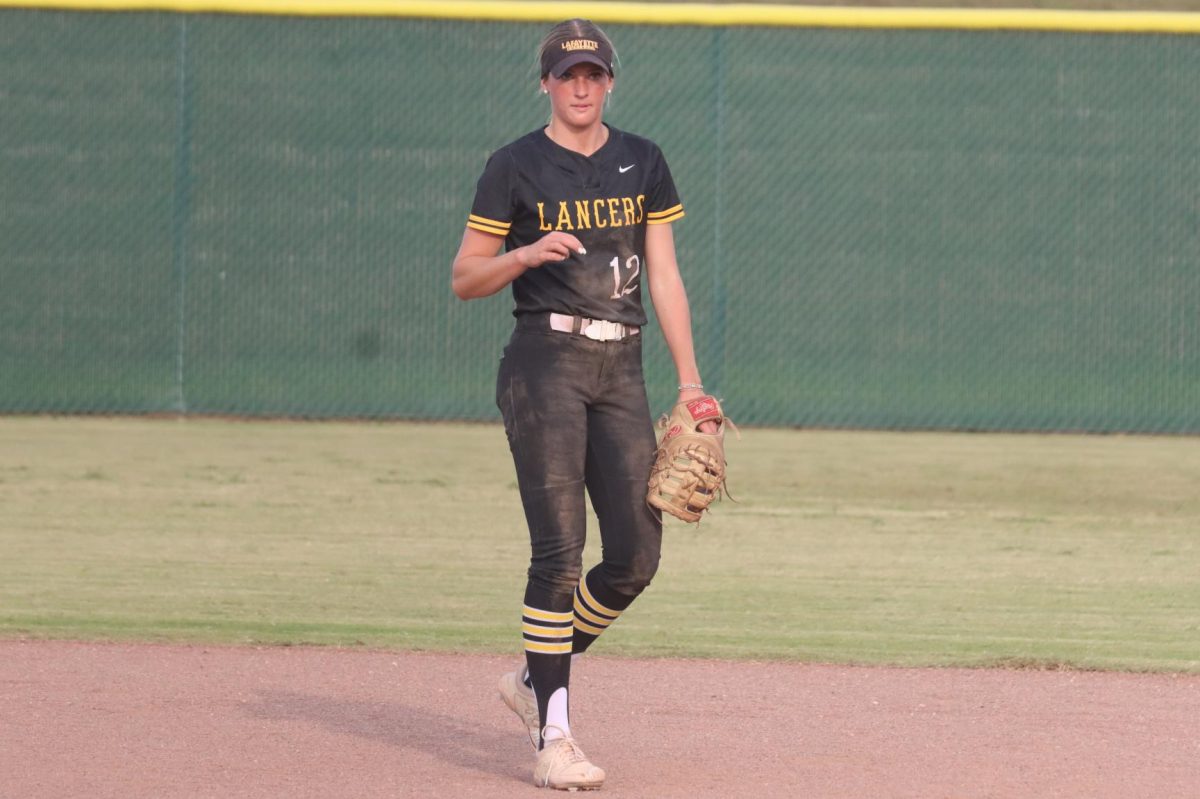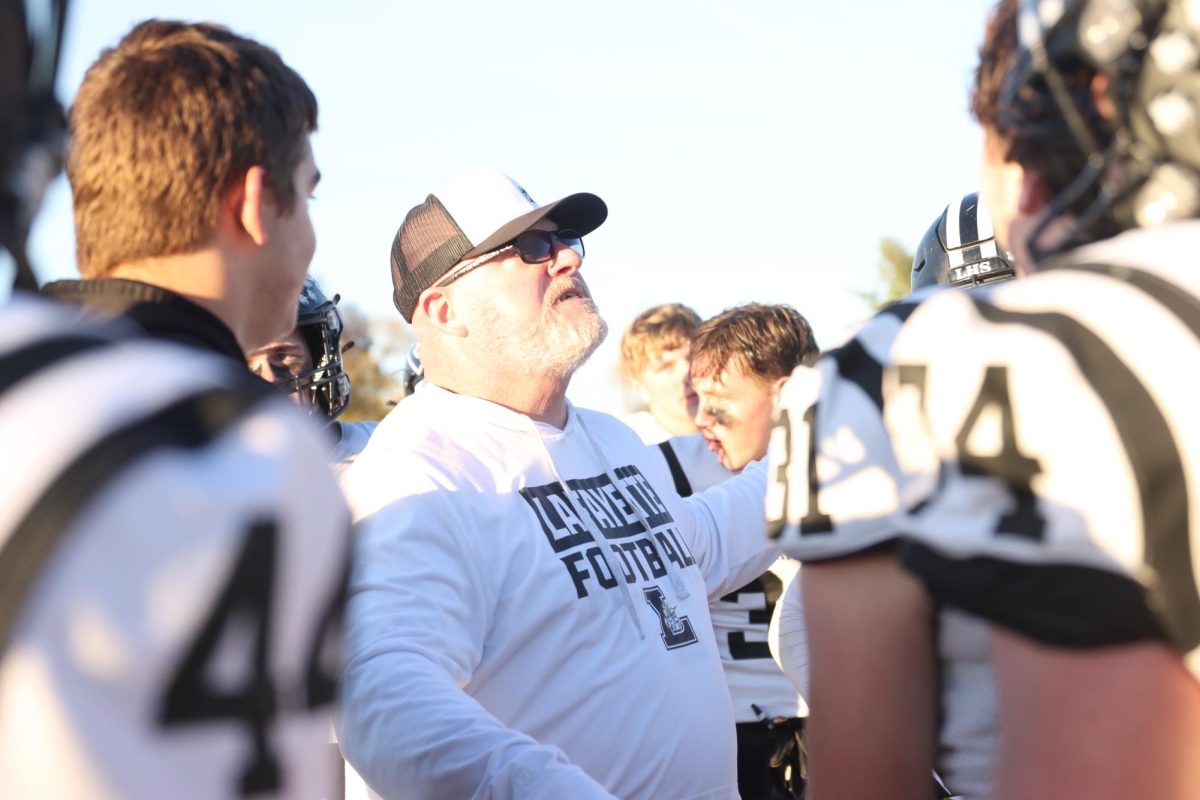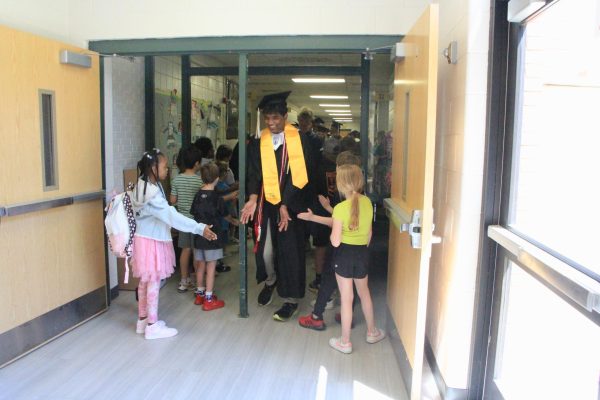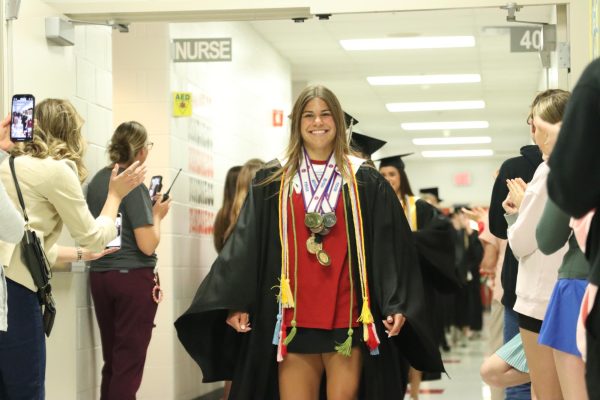Students, staff adjust to ALP
With the fourth week of the Alternative Learning Plan (ALP), students and staff are noting the challenges and benefits to the new learning plan.
With the COVID-19 virus becoming more and more of a global issue, businesses and schools alike are closing down all across the country. Even when they don’t close their doors, their policies are changing to accommodate for social distancing. All Rockwood schools have adapted to the situation by shutting their doors and resorting to online learning, currently through April 22. With the shift in education, both students and teachers are responding to their online classes with mixed feelings.
Most teachers are adjusting to classes on Zoom.
While chemistry teacher Craig Wideman would rather be in his classroom, interacting with students face-to-face, he still maintains a sense of optimism in this time of uncertainty.
“I miss my students very much but, at the same time, it’s exciting because I get to try out new ways of teaching that I’ve never tried before,” Wideman said. “In the future, hopefully, I can make some sort of hybrid of the two teaching styles.”
Even though Wideman teaches chemistry, which is primarily hands-on learning, he is still finding ways to give students important information.
“All I’m really doing is tweaking my teaching style instead of cutting out the learning objectives,” Wideman said.
However, with so many different types of classes to take at Lafayette, some are going to have a harder time transitioning over than others. Art teacher Lauren Sakowski hasn’t had too much trouble with her students, but her classes themselves are hard to teach through a screen.
“Overall, this is an incredibly stressful time,” Sakowski said, “There are so many nuances to teaching art effectively, and the majority of those nuances depend on being physically present with the students.”
Sakowski manages to juggle the difficulties of teaching art online by continuously offering learning opportunities to students who request them and by holding them at expectations appropriate for the circumstances.
Other teachers, like Geometry teacher Kevin O’Gorman, are finding new ways to keep in touch with students while curriculum prevents them from actually interacting with them in the same way.
“My favorite assignment I have posted so far asked students to update me on their lives through any medium of their choice,” O’Gorman said. “Watching their videos, reading their journal entries, and admiring their artwork has been the highlight of my ALP experience.”
Students have been greatly impacted as well. Switching from a face to face, hands-on experience and quiet, learning-friendly environment, to one that may be the opposite has had a negative effect on some students, especially those with Attention deficit disorder (ADD), Attention hyperactivity disorder (ADHD) and other disorders.
“I’m doing well with it [ALP], but because of my ADD [Attention deficit hyperactivity disorder], not having the classroom really limits the amount of work I can do in a day,” senior Zack Bell said.
“My ADD makes it so I can’t focus with a lot of stimuli, and because we’re more or less left to our own devices with work to do, and my parents are both working from home, I don’t have the limited stimulus that I have at school. I take medication, but it’s still hard to work with,” Bell said.
The ALP has definitely given students more opportunities to spend time with family and on hobbies.
“So far I like [the ALP]. It’s given me lots of opportunities for me to work at my own pace, which I do better with,” freshman Katie Caudle said.
Though students do enjoy lots more time to themselves, the lack of face to face interaction is something students are having issues with when it comes to completing assignments.
“It’s not as bad as I thought it would be since we spend a lot of time learning the same information. Though it is harder to keep track of assignments because you can’t visualize the teachers talking about the assignments,” freshman Chiara Bouckaert said.
Though some teachers are concerned about technology or curriculum, the overall primary dismay for teachers is that they want to see their students again.
“I miss interacting with my students face-to-face,” math teacher Seth Atkins said. “Technology, unfortunately, can’t replicate those interactions.”
Teachers like Atkins enjoy spending time with their students, as they feel that is the best way for their students to receive feedback and learn the material presented. Others, like Language Arts teacher Jeff Landow, just prefer teaching in person because it’s more fun to teach in person.
“Class inside jokes aren’t being developed, impromptu teachable moments aren’t popping up, and so on,” Landow said. “It’s just not as good as the real thing.”
The new Hold Harmless ALP grading policy says a student’s grade can’t drop from where it was before Spring Break. Students are reacting well towards this, and it may prove to be an effective way to decrease stress for students during this time.
“With that in mind, my stress levels are way down, but my workload is still the same. I’m trying to use this as practice for when I go off to college and don’t have the same schedule as high school,” Bell said.
Underclassmen are also seeing the positive effects of the new grading policy.
“I think it’s really good because I can work on my own time to get things done. I can turn in my paper on a different day even if it’s supposed to be done on Monday, and it won’t affect my grade now because I’m getting other stuff done,” Struble said.
Your donation will allow our student journalists to continue their work. You may become a PATRON by making a donation at one of these levels: White/$30, Black/$50, Gold/$100. Patron names will be published on the website and once per quarter on our social media accounts.

Alex Vancil is a senior who is excited for his first year on staff. He enjoys drawing cartoons for the newspaper and loves to spend time with his friends, both on and off staff. Alex can be contacted at [email protected].

Caoimhe is a junior and this is their third year on the news production staff. When they’re not writing or creating cartoons, they can be found helping with the GSA, drawing or watching movies. They can be contacted at [email protected].




